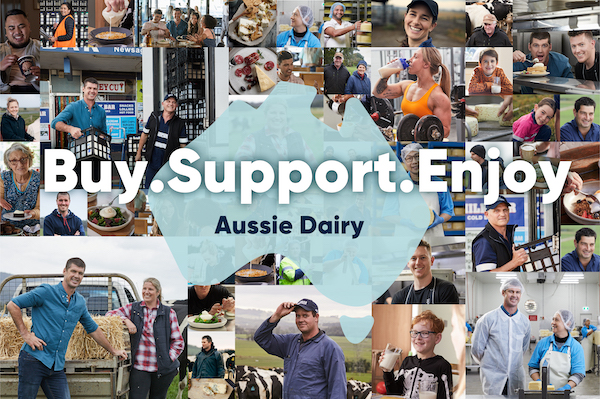



Article by: Hari Yellina
Agriculture Minister David Littleproud blames supermarkets, unions, drought, and inadequate campaigning for a dramatic decline in dairy farm numbers revealed by last week’s levy poll data. According to data from the dairy levy poll, there were only 4401 dairy farms eligible to vote in Australia, down 13% from 5013 farms in 2019/20. Mr Littleproud said drought had wreaked havoc on the industry, and many farmers had taken advantage of high land prices to exit the business, but he also blamed supermarkets. “I believe retailers had a huge role in it,” he remarked, pointing to the dollar-a-litre milk war.
“There were major structural adjustments that needed to be made, and it doesn’t surprise me,” Mr Littleproud said, “but it deeply disturbs me.” While he admitted that dollar-a-litre milk was “broken,” he said the business needed “harmony” and “clear direction” to move forward. “I don’t think supermarkets are doing themselves any favours, not only on dairy but on a number of commodities,” Mr Littleproud said. “I think one of the things that we want to look at, especially the Nationals, and we’ll be bringing our Coalition partners with us on this one, is that there needs to be better reform around how supermarkets deal with perishable goods.”
Farmers would get the same information about output levels and costs as supermarkets, allowing them to bargain on a more level playing field, he said. The Australian Milk Price Initiative, which debuted a month ago and received $500,000 in financing following the election, is an example of a transparency tool. The Minister stated that the next step would be to enhance the legislation governing supermarket-farmer agreements. He claimed that the penalties for violations were currently merely “a cost of doing business” for supermarkets.
“We need to move to make sure that regulatory guardrails are apparent to them, but if they step outside of them, there’s a punishment, and it should be a significant penalty,” Mr Littleproud said. He described Australia’s dairy advocacy as “fragmented” when asked about “harmony.” “When you have fragmented representative bodies, it’s impossible to know what producers really want, which makes it tough for a minister to make a decision,” he explained. Mr Littleproud pointed out that the fragmentation of dairy advocacy was evident when it came to establishing the obligatory code.
“It was very tough to have everything in place when you had different forces articulating different things,” he remarked. “In the end, what it implies is that it either delays or prevents any action from being performed.” In the run-up to the dairy levy poll vote, there had been a lot of dissent, with the main national group Australian Dairy Farmers defying its own national council and recommending no rise in the charge. Mr Littleproud refused to say whether he thought the levy referendum was a vote of confidence in Dairy Australia.
However, it is the labour deficit that has brought dairy advocacy groups from all around Australia together. The Morrison administration unveiled the Ag Visa programme in September, saying that employees would be on the farm by Christmas, but only Vietnam has consented to participate so far. The Australian Workers Union, Mr Littleproud said, was to blame. “We were only able to get Vietnam to sign up as the first country because the AWU demonised farmers and claimed that they would exploit their workers, so they went to embassies and ambassadors and told them not to send their citizens because Australian farmers would exploit them,” he explained.